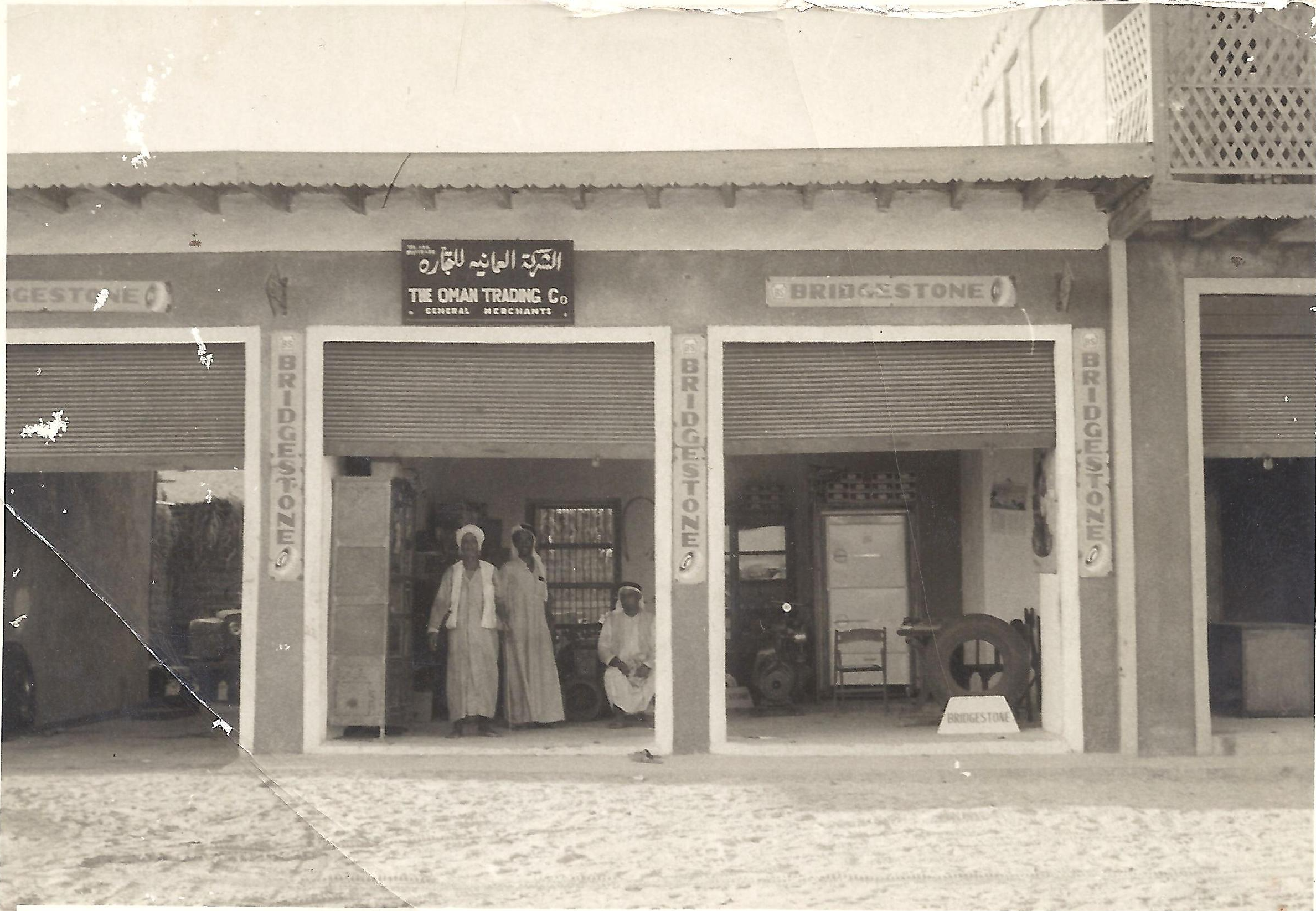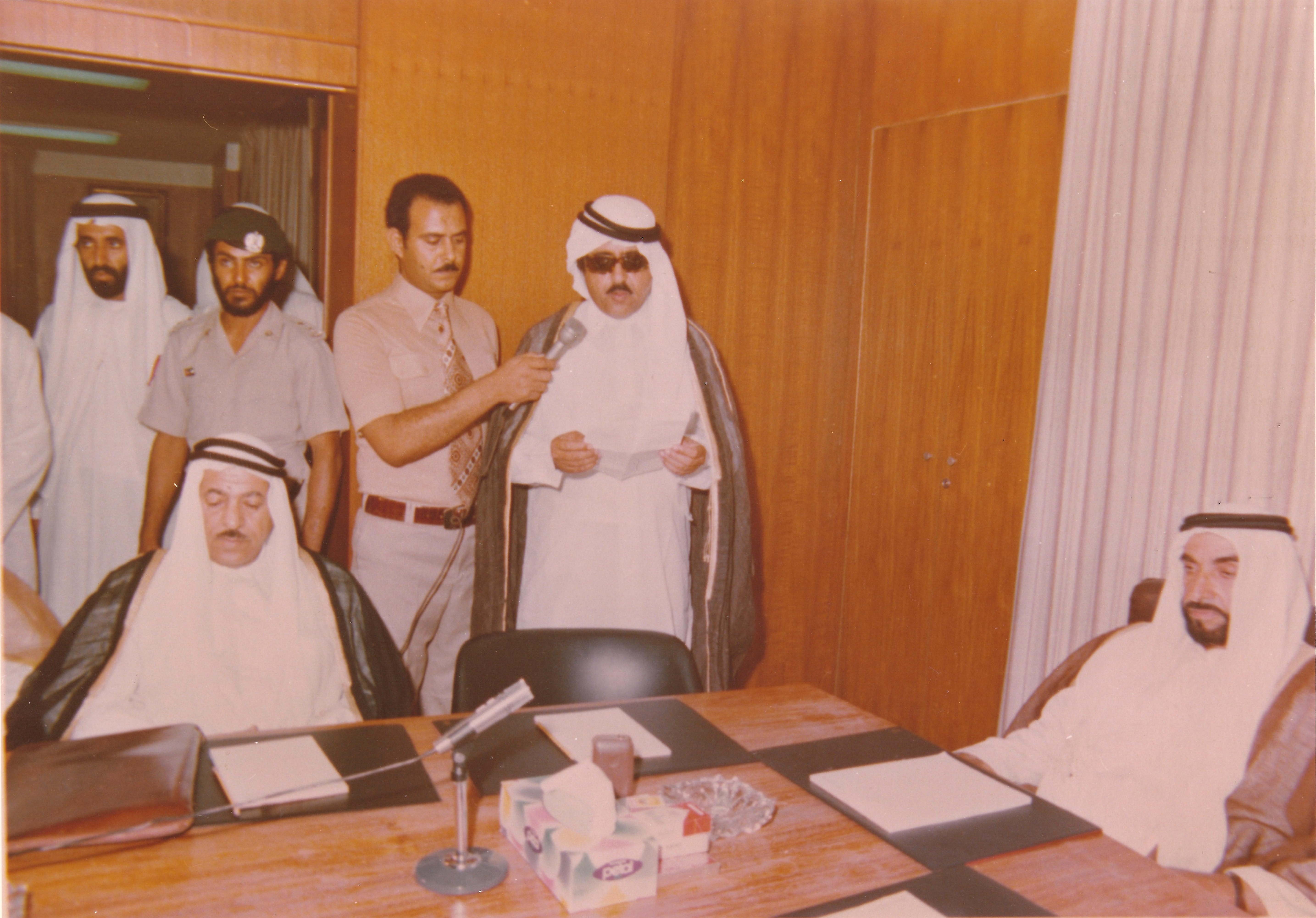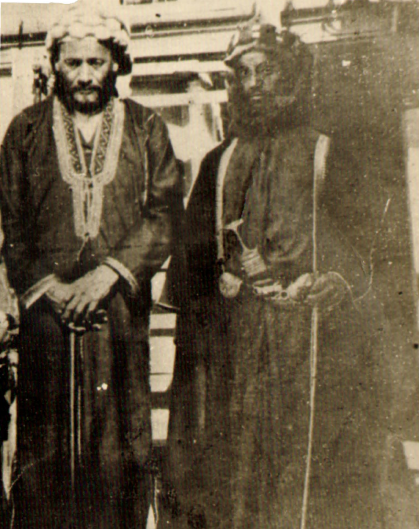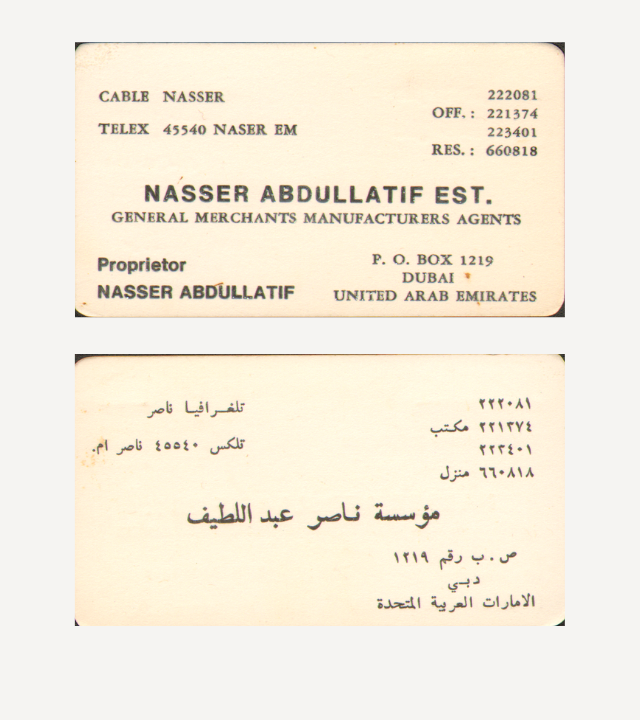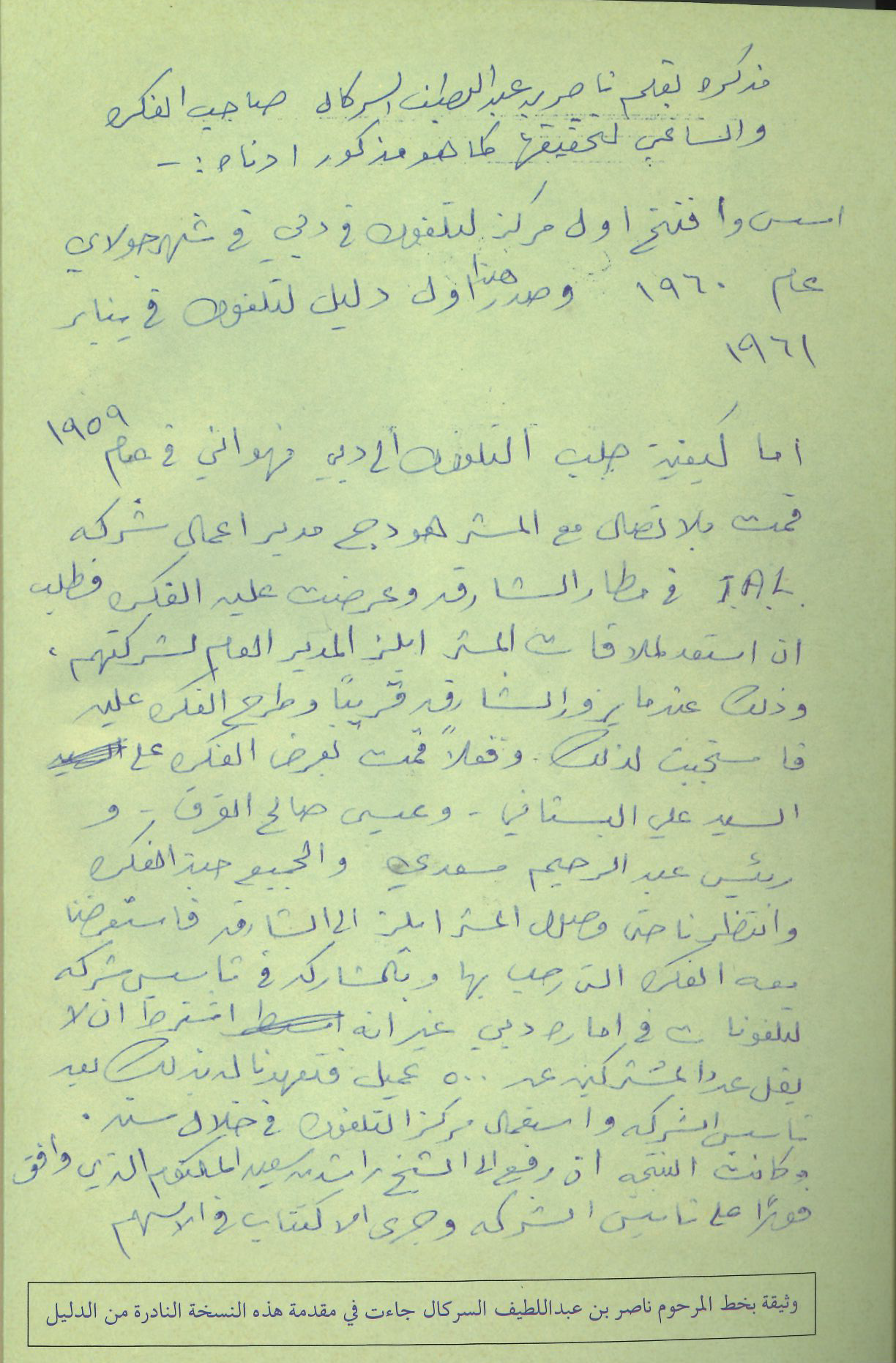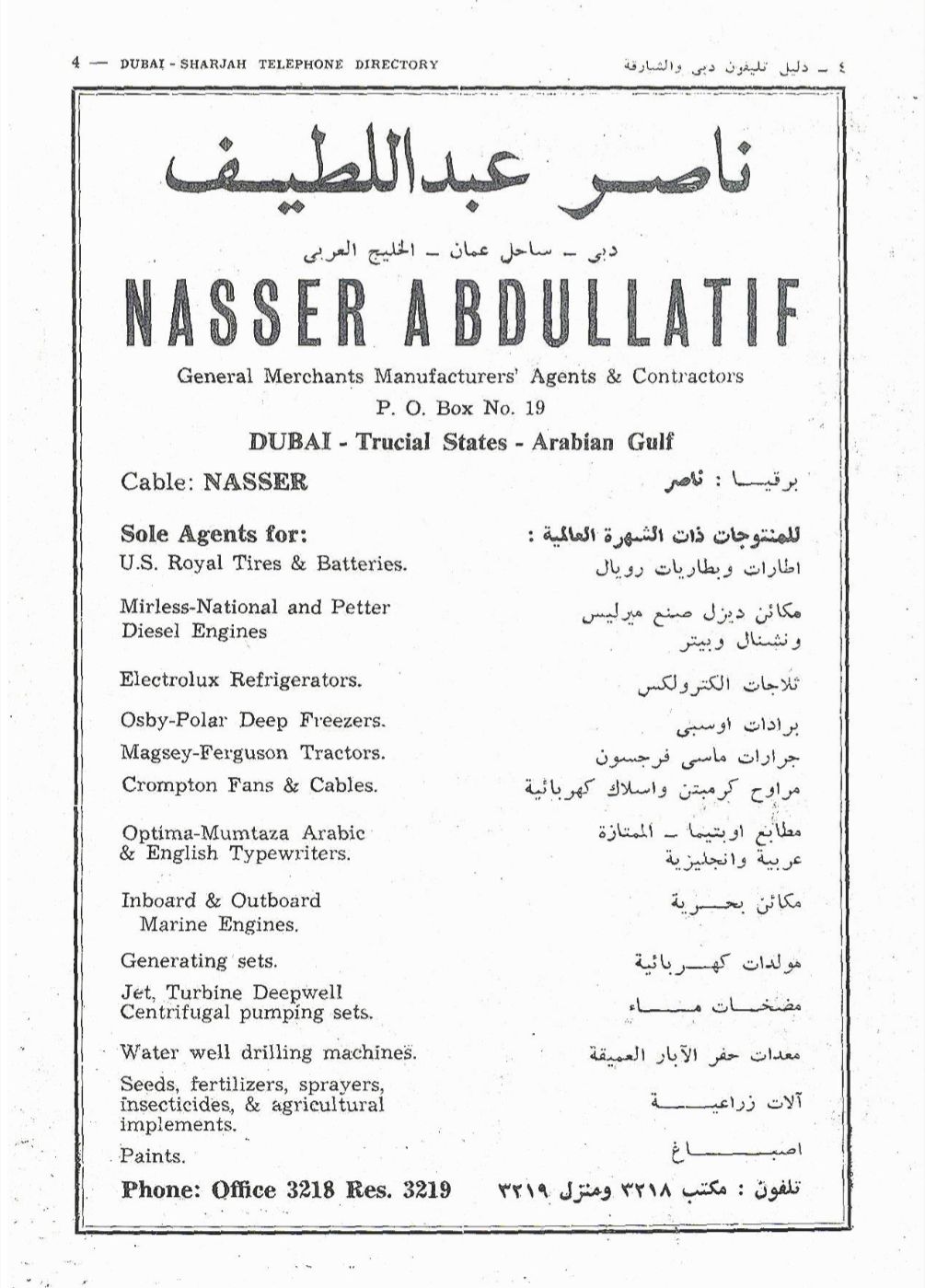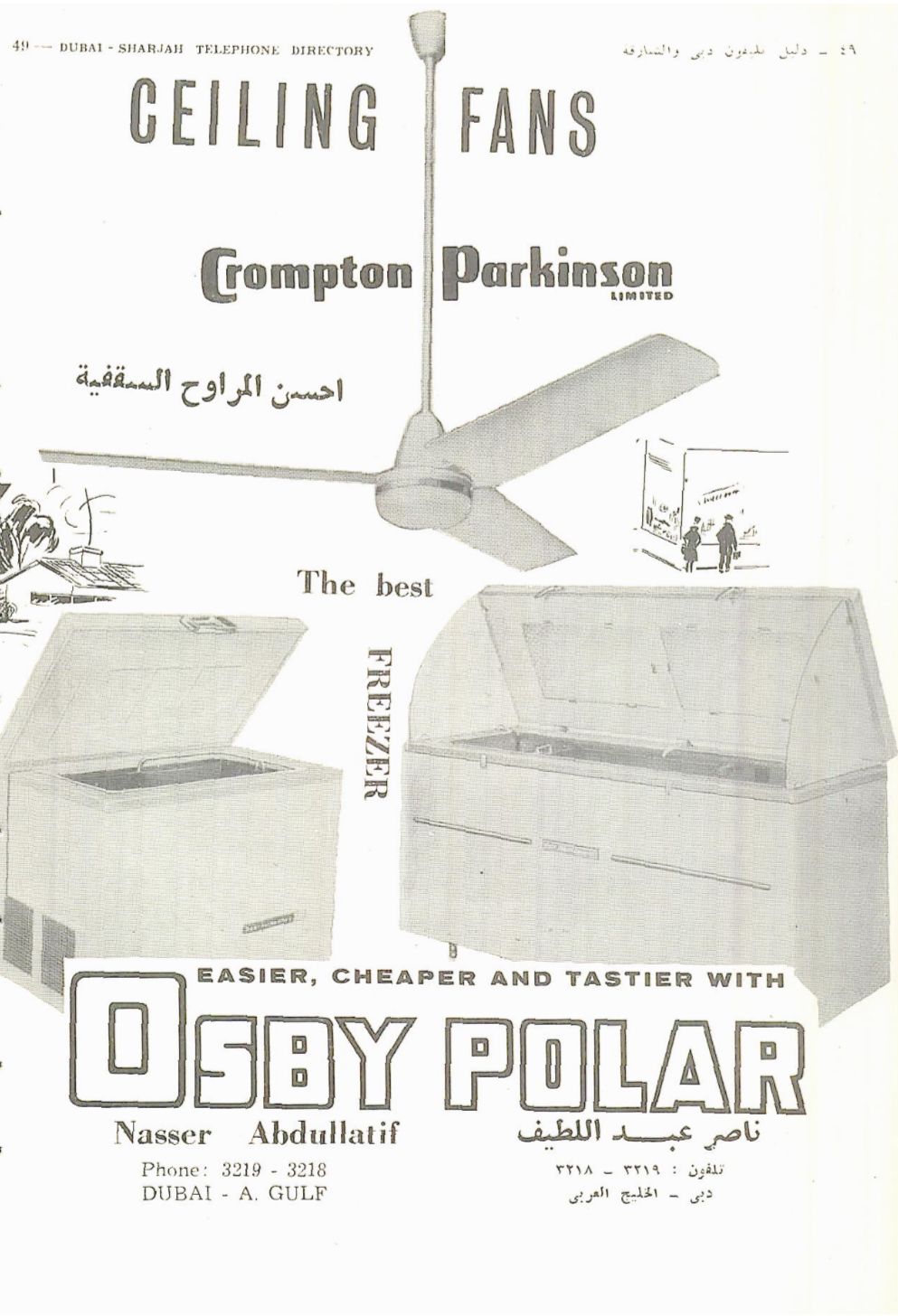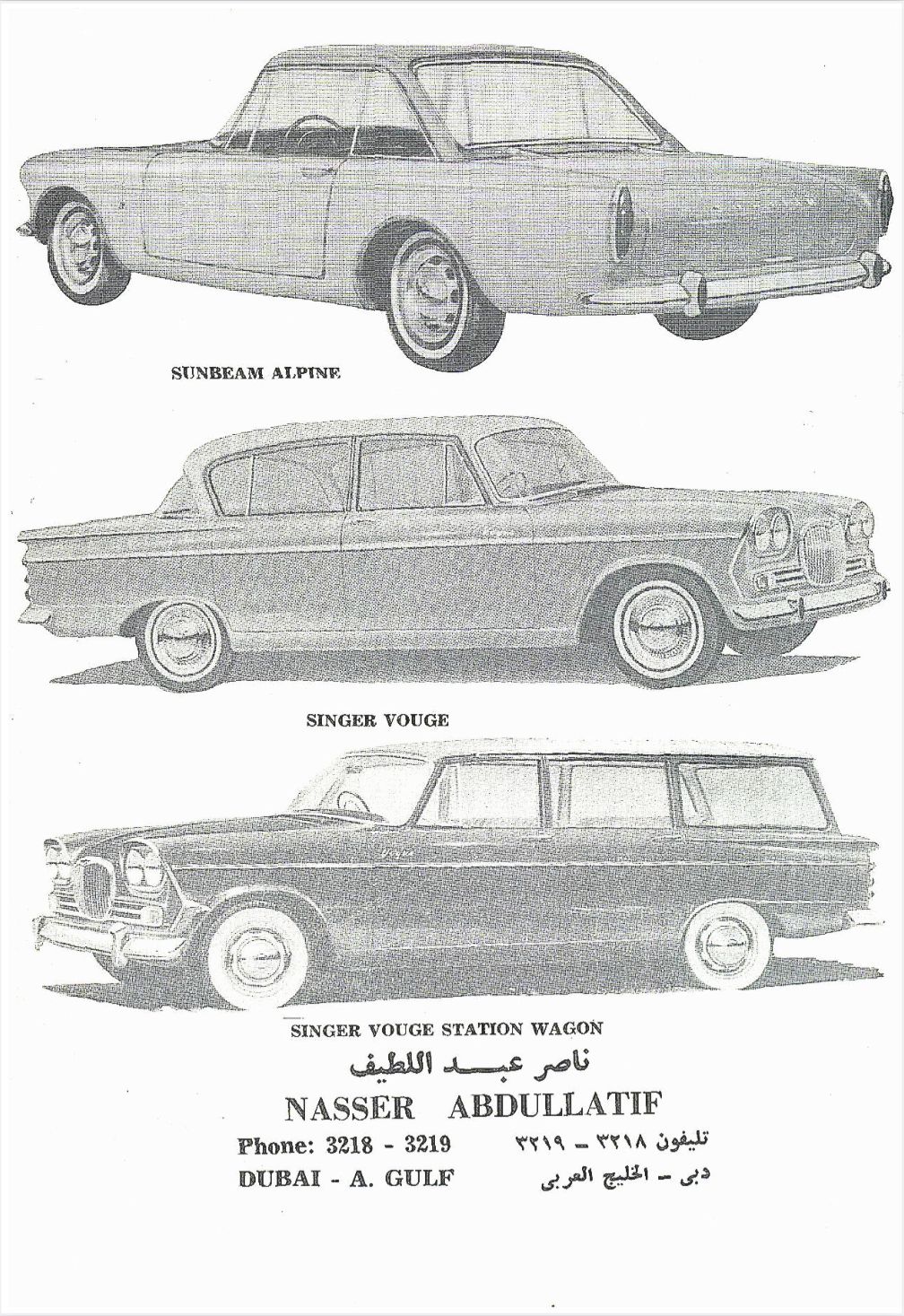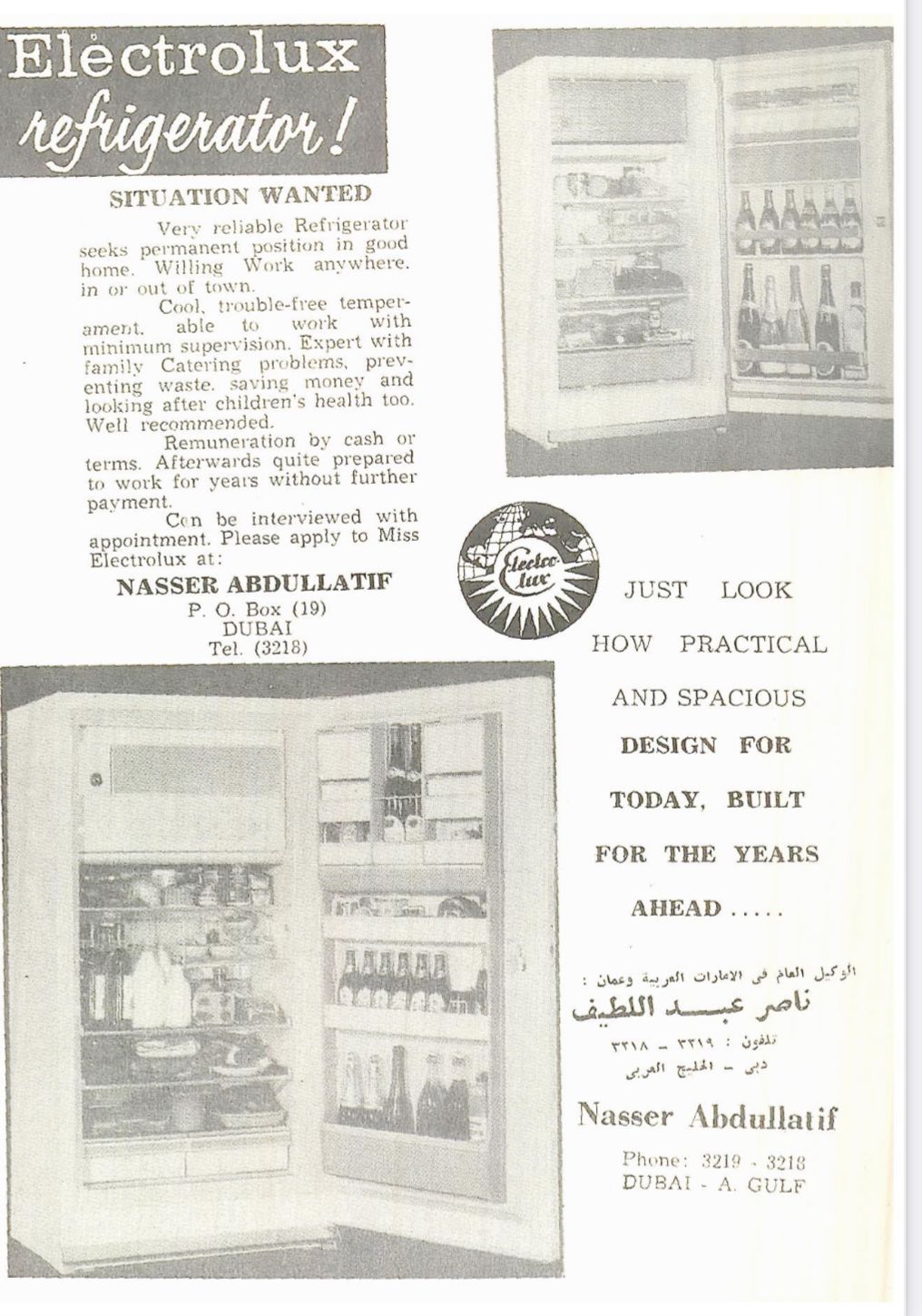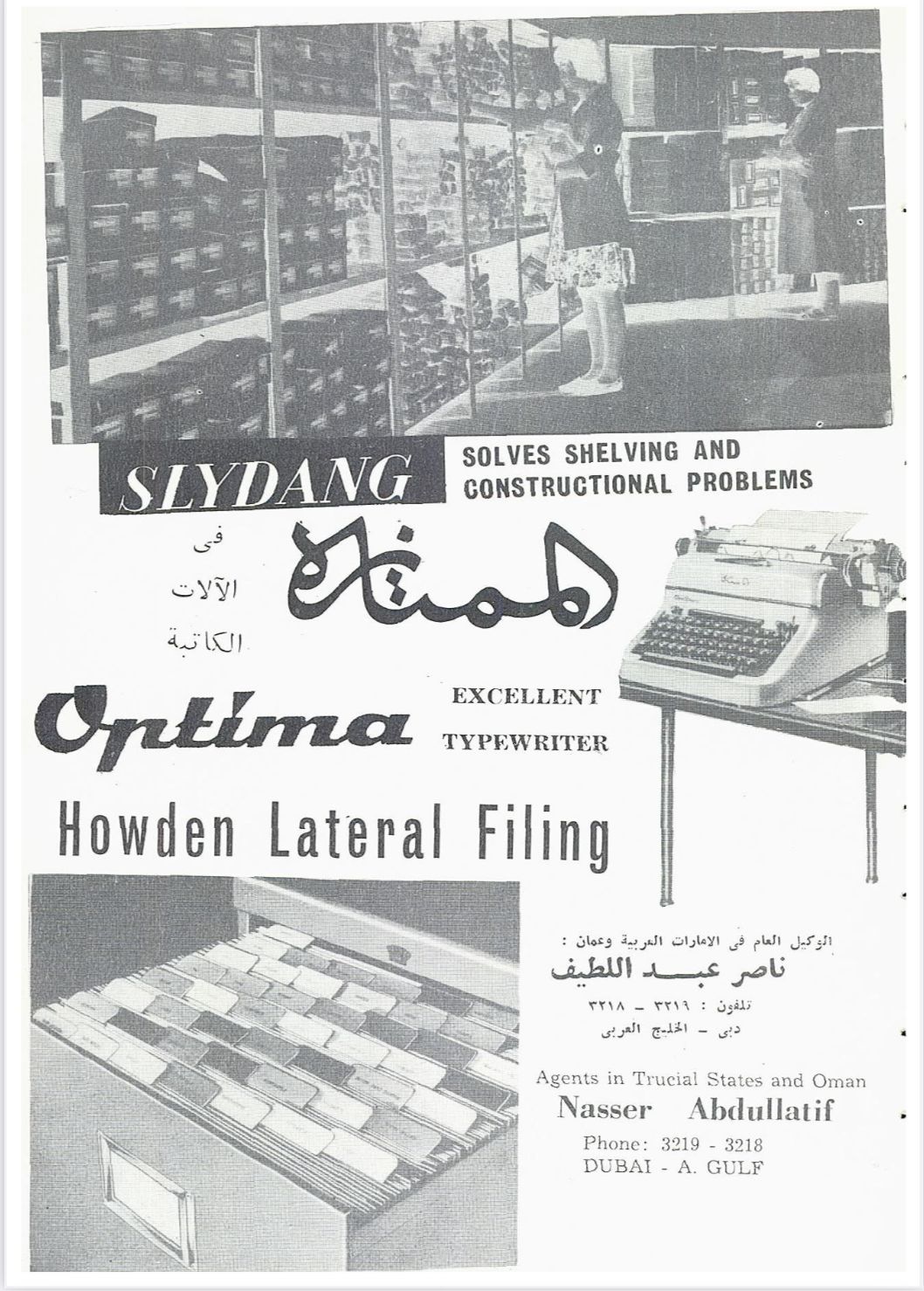Case Study
Nasser Bin Abdullatif Alserkal Est.
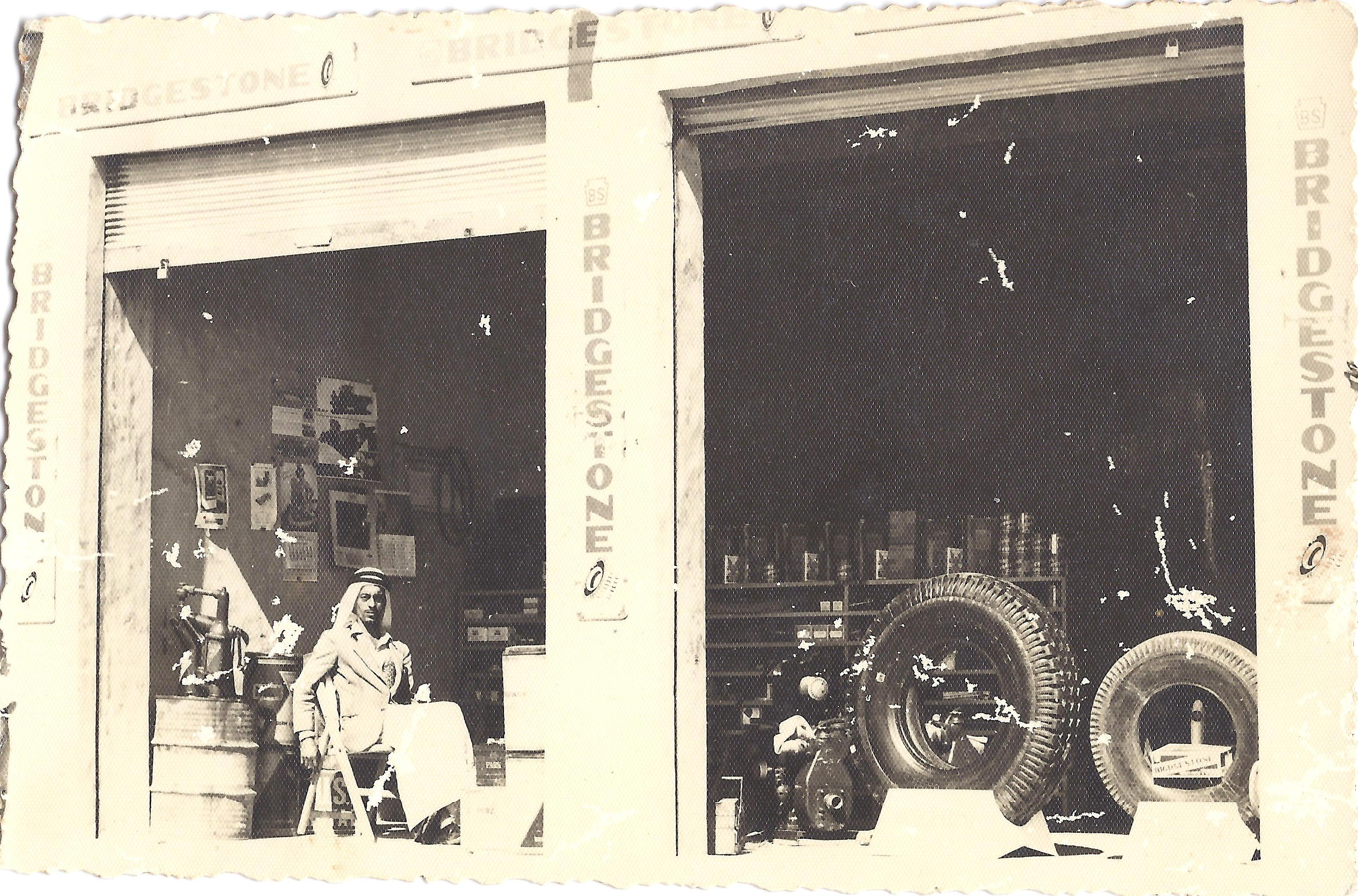
Showroom of Nasser Bin Abullatif Alserkal Est., Jamal Abdul Nasser Square [today Baniyas Square], Deira, Dubai, UAE. Undated. Source: Alserkal Family
FAMILY BUSINESS OVERVIEW
Nasser Alserkal’s family’s heritage both as merchants and as local figures who contributed to the development of the emirates was key to forging his aspirations and values as a businessman.
Nasser Bin Abdullatif Alserkal Est., founded in 1947 began as a general trading entity and has since evolved into a diverse conglomerate involved in fields such as trade, manufacturing, recycling, healthcare, banking, art and culture, construction, travel and tourism, and real estate, among many other fields. After Nasser Alserkal’s passing in 1990, his only son Eisa bin Nasser Alserkal succeeded him. Today, the second and third generation family members jointly manage the family business. Of Eisa bin Nasser Alsekal’s seven children, his three sons and daughter are involved in the management of the family business, taking responsibility for various divisions of the widely diversified company.
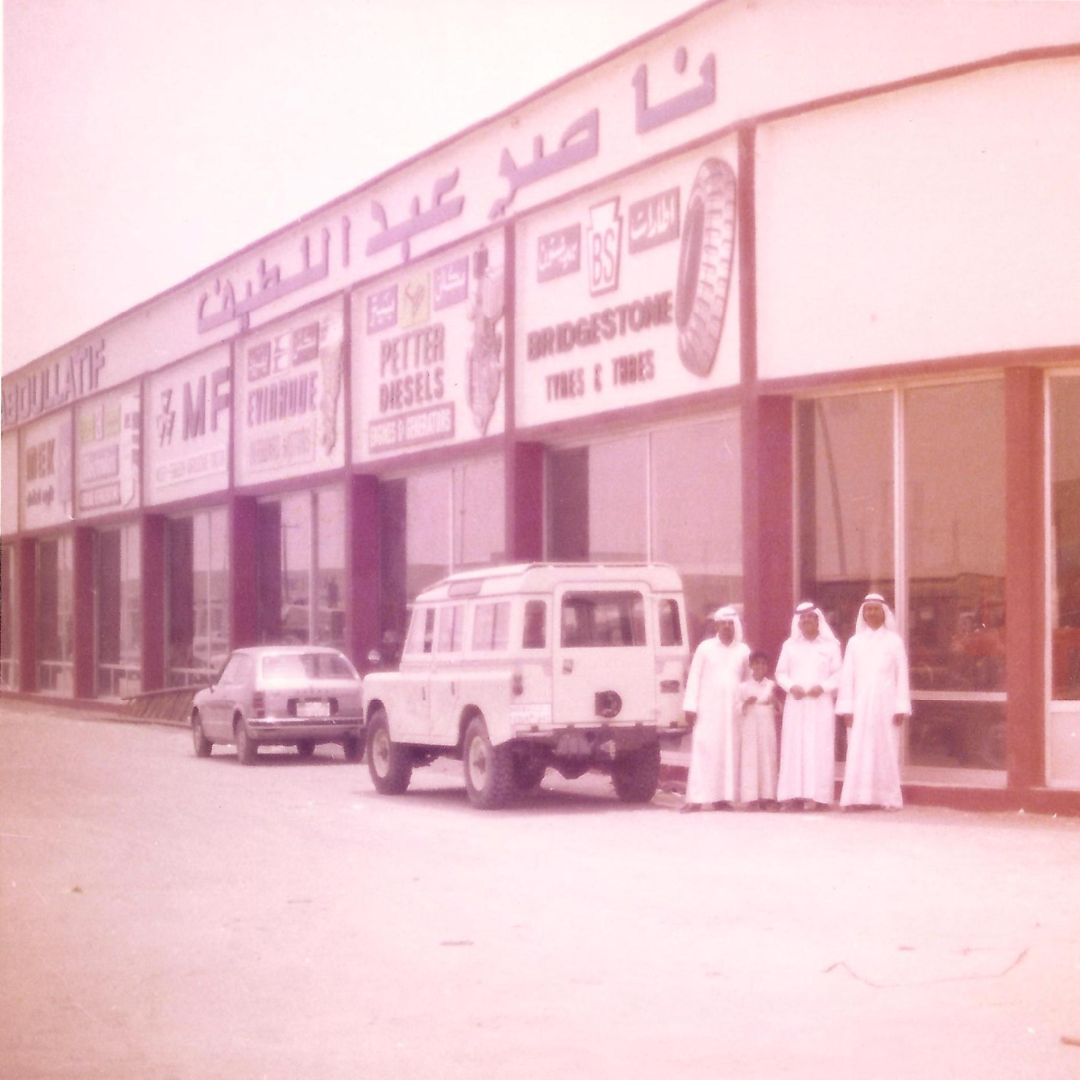
Showroom of Nasser Bin Abdullatif Alserkal Est. Airport Road, Port Saeed, Deira, Dubai, UAE, 1970. Source: Alserkal Family
By the Numbers
1947
820+
4 Gen
1917 – 1947
Founding Journey
Nasser bin Abdullatif Alserkal was born in 1917 into one of Dubai and Sharjah’s leading families. His grandfather Abdulrahman bin Mohammed Alserkal who passed away in 1883 was a merchant and owned trading ships which conducted trade between the Gulf, India and Africa. Nasser’s father, Abdullatif bin Abdulrahman Alserkal also became a merchant and owned pearling ships. After his father’s death in 1919, his older brother, Eisa bin Abdullatif Alserkal, became one of the primary authority figures in his life. Nasser’s grandfather, father and older brother had all served as native agents for the British government in Sharjah. Nasser’s early exposure to business and entrepreneurial interactions helped shape Nasser’s business acumen and fighting spirit.
Eisa Alserkal’s passing in 1935 was a turning point in Nasser’s life. Coming from a family of highly accomplished individuals, he felt the need to live up to the family name by building a career of equal importance for himself. At that time, Dubai was in a state of economic crisis with the decline of the pearling industry, but Nasser was determined to look for opportunities despite the crisis.
Nasser Alserkal saw an opportunity and opened his first shop in 1947 in the Date Market in Deira, where he started trading automobile spare parts from Ford. In the same year, he established Nasser Bin Abdullatif Alserkal Est., and later became the sole regional distributor for the Bridgestone Corporation – a leading Japanese tires manufacturer. Nasser Alserkal’s business continued to grow and he managed to expand its offering into various business lines such as vehicles and motors, home and office appliances, industrial and agricultural products and equipment, as well as electrical and hardware supplies.
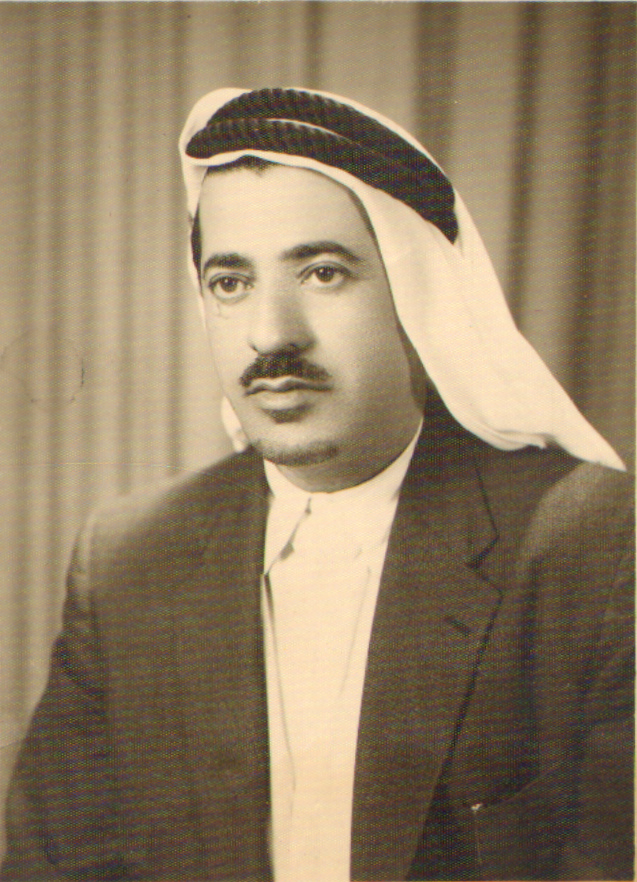
Founder Nasser bin Abdullatif Alserkal, Dubai, UAE. 1950s. Source: Alserkal family
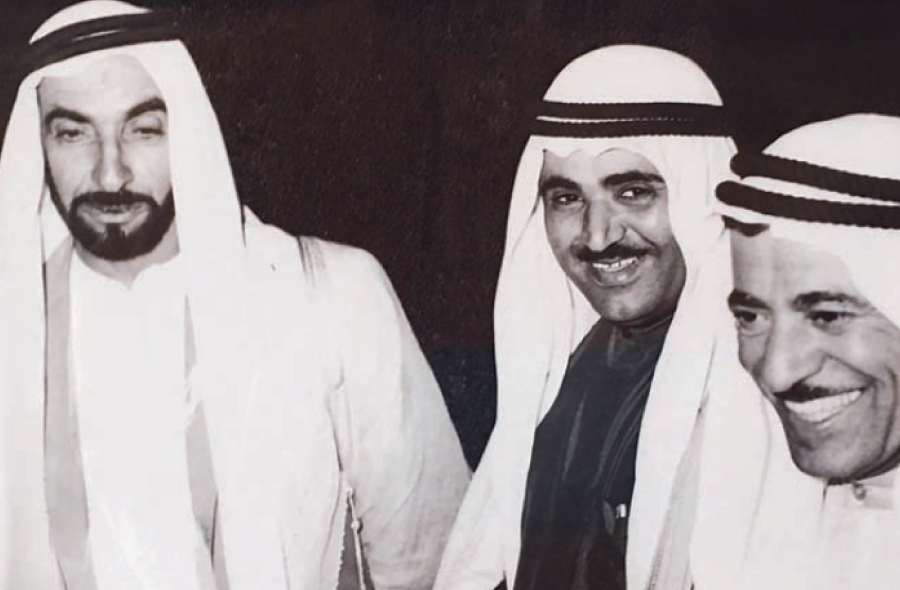
Nasser bin Abdullatif Alserkal, Sheikh Zayed bin Sultan Al Nahyan. Undated. Source: Alserkal Family
1950s – 1970s
Growth and Consolidation
In the 1950s, Nasser Bin Abdullatif Alserkal Est. flourished along with the local economy. For example, recognizing the increasing demand for generators, Nasser Alserkal proposed to Sheikh Rashid bin Saeed Al Maktoum the creation of a public company that would supply electricity on a broader scale across the emirate, which eventually led to the establishment of Dubai Electricity and Water Authorities (DEWA).
Nasser Bin Abdullatif Alserkal Est. began diversifying its profile and since evolved into a diverse conglomerate involved in fields such as trade, healthcare, banking, art and culture, construction, travel and tourism, and real estate, among many other fields.
The Business Family
Nasser Alserkal’s desire to be part of the economic growth of the Emirate of Dubai and serve his community by elevating its living standards led him to invest in local business opportunities with expansions beyond the United Arab Emirates.
Eisa bin Nasser Alserkal, the founder’s only son assumed the leadership of the company, following Nasser Alserkal’s passing in 1990. He was able to draw from his experience working alongside his father over the years. Today, the second and third generation family members jointly manage the family business.
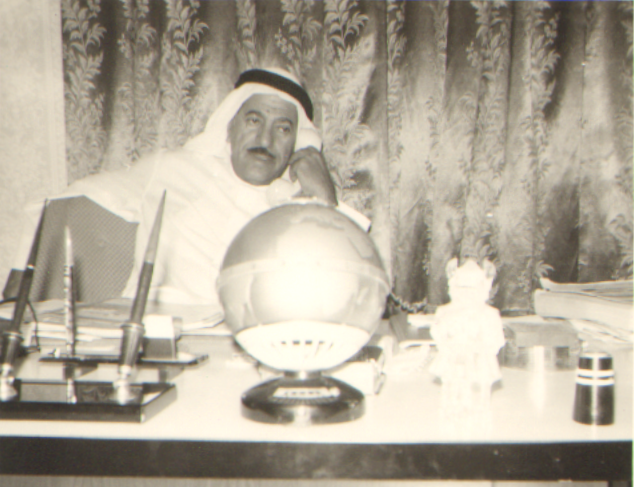
Nasser bin Abdullatif Alserkal in his office. Dubai, UAE. November, 1973. Source: ALSERKAL FAMILY
Explore the Full Case Study
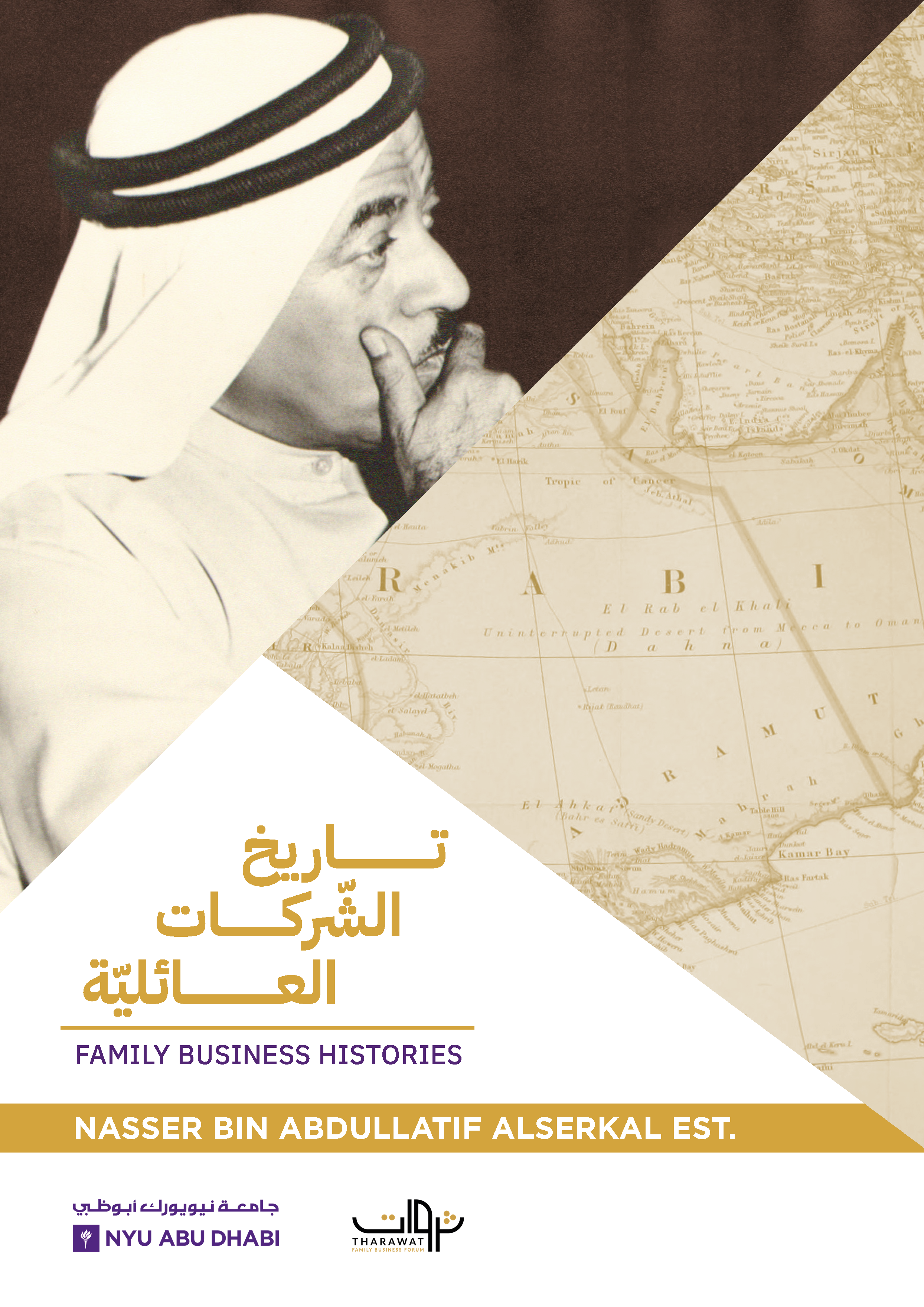
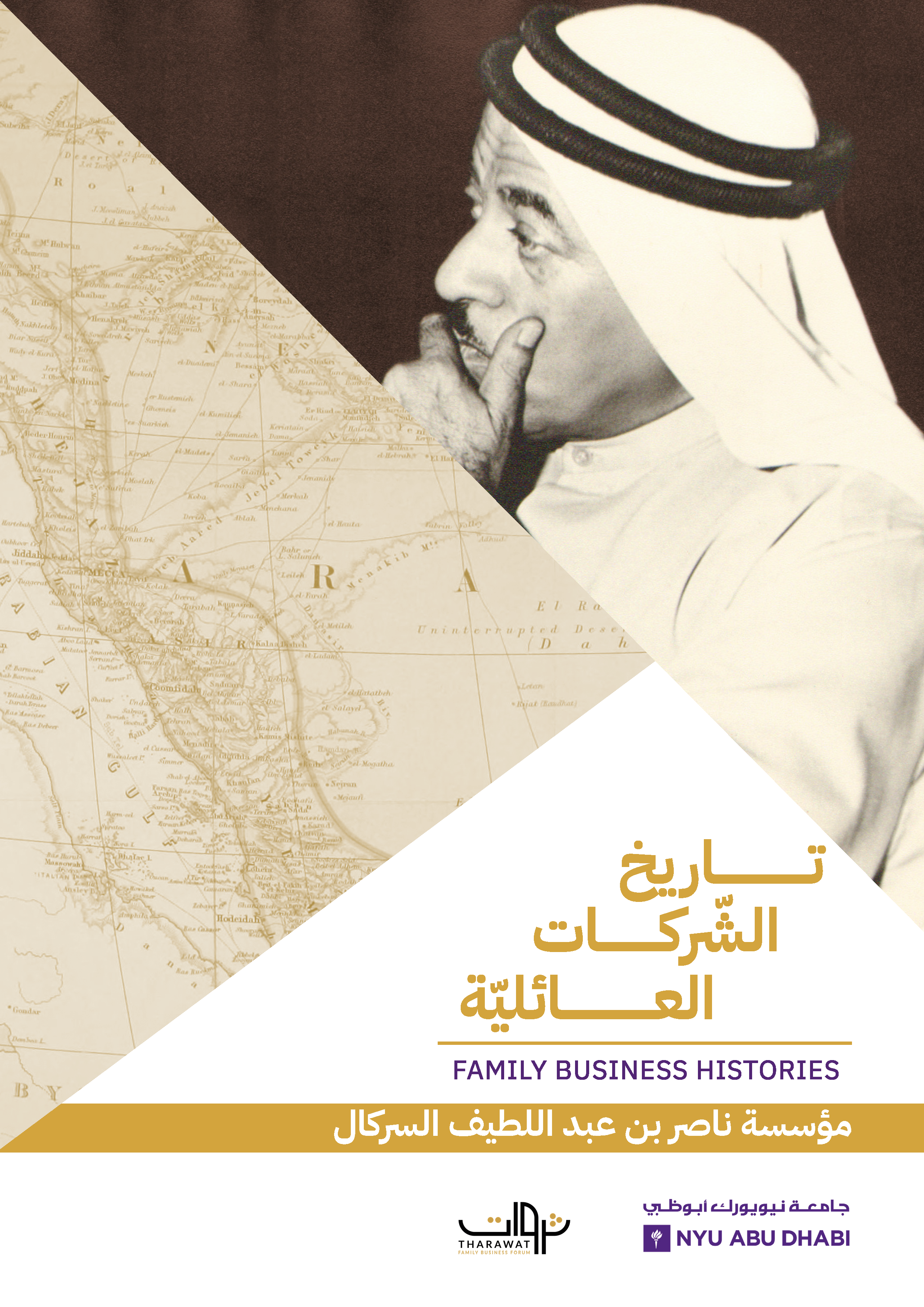
By submitting, you are providing certain personally identifiable information to NYU Abu Dhabi and Tharawat Family Business Forum. You consent to the collection and use of this information for our internal application and to contact you for future Family Business Histories news and updates. When handling this information, we shall use measures no less protective than those used for our own information. We will not share your personal data with third parties or use it for any other purpose than stated above.

